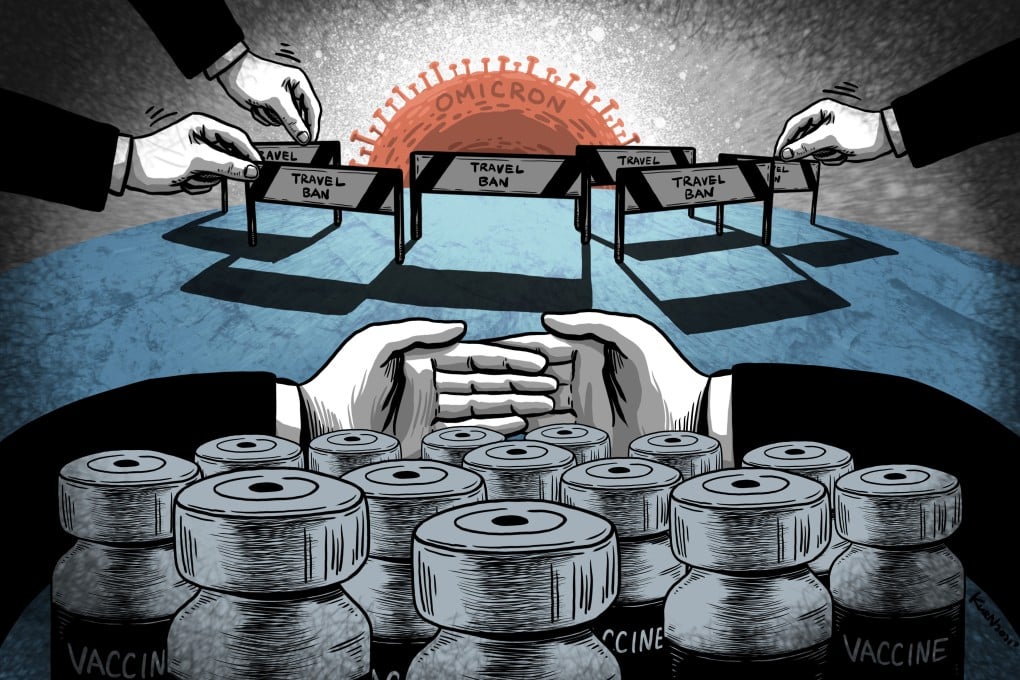Omicron puts travel bans and vaccines inequity front and centre in pandemic politics
- World Health Organization praises South Africa and Botswana for reporting the new Covid-19 variant, decries travel restrictions imposed against African nations
- Experts also say the sharp inequities in access to vaccines raise the risk of the emergence of pandemic variants

As African leaders decried the moves and warned of dire economic impacts, the global fallout began.
WHO officials were quick to push back, praising South Africa and Botswana for detecting and reporting the new variant, known as Omicron, and denouncing blanket travel bans.
“Our current system disincentivises countries from alerting others to threats that will inevitably land on their shores,” WHO chief Tedros Adhanom Ghebreyesus said, calling for reforms.
Rather than blanket travel restrictions, the WHO leaned towards screening and quarantining new arrivals.
It also invoked an agreement made more than 15 years ago, when WHO member nations pledged not to “significantly interfere with international traffic” during public health emergencies without providing proper scientific justification.
